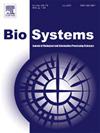Modularity in biological thought: Sketch of a unifying theoretical framework
IF 2
4区 生物学
Q2 BIOLOGY
引用次数: 0
Abstract
This paper sketches a theoretical conception of modularity by generalizing Herbert Simon's idea of near-decomposability, showing that it could constitute a framework for the unification of the notion of modularity in the history and philosophy of biology. To put the framework to test, first a main problematic area is highlighted--the evolution of modularity--focusing on a historical and rational reconstruction of two ways of viewing it that appeared in the second half of the 20th century: one, due to Herbert Simon, rooted in a generic Darwinian mindset, the other, by Stuart Kauffman, inspired by a systemic-oriented approach tending to demote the importance of natural selection. It is shown that, under the light of the general view of modularity proposed here, these two apparently incompatible views can be interpreted as fundamentally homologous. The paper then engages with some current prominent views on modularity in biology, in order to show that the proposed framework is largely compatible with them, and able to accommodate cases of emergent modularity. The facilitating role of modularity in mechanistic and functional explanations is also highlighted. As a conclusion, it seems the proposed sketch of a theoretical view of modularity, open to further improvement, already shows potentiality as a unifying framework for the notion of modularity in philosophy and history of biology, and possibly, other disciplines.
生物学思想的模块化:一个统一理论框架的草图。
本文通过概括赫伯特·西蒙的近可分解性思想,勾勒出模块化的理论概念,表明它可以构成一个框架,以统一模块化的概念在生物学的历史和哲学。为了检验这个框架,首先强调了一个主要的有问题的领域——模块化的进化——专注于对20世纪下半叶出现的两种看待模块化的方式的历史和理性重建:一种是由赫伯特·西蒙(Herbert Simon)提出的,植根于一般的达尔文主义思维模式;另一种是由斯图尔特·考夫曼(Stuart Kauffman)提出的,受到一种倾向于贬低自然选择重要性的系统导向方法的启发。结果表明,根据本文提出的模块化的一般观点,这两种表面上不相容的观点可以被解释为从根本上是同源的。然后,本文结合了目前一些关于生物学模块化的突出观点,以表明所提出的框架在很大程度上与它们兼容,并能够适应新兴模块化的情况。模块化在机制和功能解释中的促进作用也得到了强调。作为结论,似乎提出的模块化理论观点的草图,开放进一步改进,已经显示出作为哲学和生物史的模块化概念的统一框架的潜力,可能还有其他学科。
本文章由计算机程序翻译,如有差异,请以英文原文为准。
求助全文
约1分钟内获得全文
求助全文
来源期刊

Biosystems
生物-生物学
CiteScore
3.70
自引率
18.80%
发文量
129
审稿时长
34 days
期刊介绍:
BioSystems encourages experimental, computational, and theoretical articles that link biology, evolutionary thinking, and the information processing sciences. The link areas form a circle that encompasses the fundamental nature of biological information processing, computational modeling of complex biological systems, evolutionary models of computation, the application of biological principles to the design of novel computing systems, and the use of biomolecular materials to synthesize artificial systems that capture essential principles of natural biological information processing.
 求助内容:
求助内容: 应助结果提醒方式:
应助结果提醒方式:


